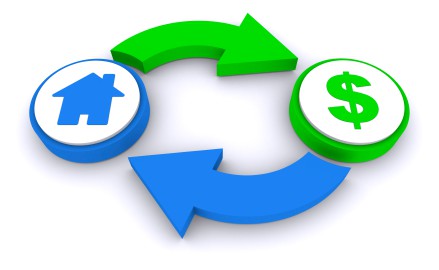Are reverse mortgages still a good idea?
 With the recession now in the rear view mirror for all intents and purposes, many people are beginning to feel more comfortable with the thought of keeping their homes. With retirement investments gaining ground and homes increasing in value, does it still make sense to enroll in a reverse mortgage?
With the recession now in the rear view mirror for all intents and purposes, many people are beginning to feel more comfortable with the thought of keeping their homes. With retirement investments gaining ground and homes increasing in value, does it still make sense to enroll in a reverse mortgage?
The answer, as is the case in a multitude of situations, is “it depends.”
A reverse mortgage is a specialized type of home loan that lets homeowners convert a portion of the equity in a home into cash while the home is still occupied. The equity that has been built up over years of paying the home mortgage payments can be paid out in a lump sum or in payments.
But contrary to a traditional home mortgage, no repayment is required until the homeowner no longer uses the home as his / her principal residence. For example, if the homeowner would need to move into a nursing home or had passed away, only then would the payment would come due.
One of the most well known reverse mortgages is the FHA’s Home Equity Conversion Mortgage (HECM) program, which enables homeowners to withdraw some of the equity in a home. The program is referred to on the U.S. Department of Housing and Urban Development website, noting “if you are a homeowner age 62 or older and have paid off your mortgage or paid down a considerable amount, and are currently living in the home, you may participate in FHA’s Home Equity Conversion Mortgage (HECM) program. The HECM is FHA’s reverse mortgage program that enables you to withdraw a portion of your home’s equity. You can also use a HECM to purchase a primary residence if you are able to use cash on hand to pay the difference between the HECM proceeds and the sales price plus closing costs for the property you are purchasing.”
To be eligible for a FHA HECM, the FHA requires that a homeowner: be 62 years of age or older, own the home outright or have paid down a considerable amount, not be delinquent on any federal debt, have the necessary finances to continue making timely payments for required taxes and homeowner fees, and must occupy the property as a principal residence. Ultimately, a homeowner contemplating a reverse mortgage must receive mandatory consumer information from an approved HECM counselor prior to obtaining the loan.
So, why not just get a traditional second mortgage or home equity line of credit? Of course that is an option, but remember a homeowner will need sufficient income to qualify for the loan and have to make regular monthly payments, which lessens the available equity.
Back to the original idea. The reverse mortgage is obviously different because it pays the homeowner while they are in the house, and if all the previously mentioned qualifying criteria are met, it is available regardless of current income. The amount a homeowner can borrow depends on their age, the current interest rate, and the appraised value of the home (or FHA’s mortgage limits for the specific area, whichever is less). Generally, the more valuable the home is, the older a homeowner is, and the lower the interest rate, the more that can be borrowed.
Ultimately, any homeowner considering a reverse mortgage should obviously proceed with caution. There are always concerns when making large financial decisions. In the end, even if a reverse mortgage sounds like a great idea, it may come with so many charges and hidden fees that it becomes a bad deal. Anyone that might be interested in a reverse mortgage should definitely speak with a HUD counselor first before any financial arrangements are made or agreements are signed.